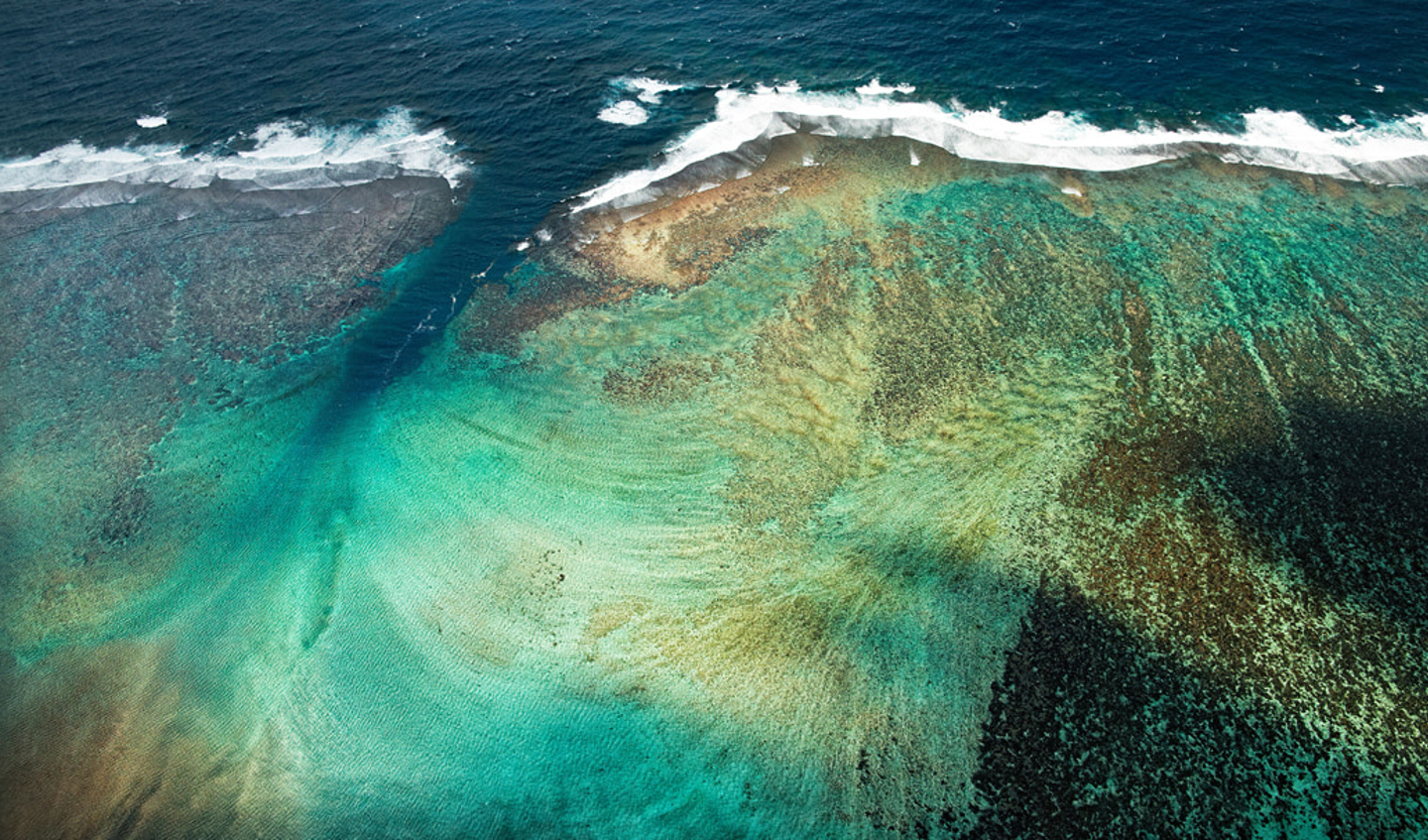Richard Hixson is a Consultant in Anaesthesia and Critical Care Medicine at County Durham and Darlington NHS Foundation Trust. But, demanding though that job may be, he has still found time to undertake a range of bold endeavours to highlight why the sustainability of our planet matters to each and every one of us.
Hixson described a lightning moment when he spotted the direct link between human health and ocean health. With his background in the UK’s National Health Service (NHS), he realised that he was in a unique position to cast more light on healthcare supply chains.
The outcome has been the establishment, together with Georgie Sowman, a GP in the Northeast of England, of NHS Ocean, a group of highly-motivated ecologists who believe that the marine environment and the world’s oceans, in particular, comprise a key component in the lifeblood of our planet. And they believe that human beings should be doing more to look after them.
More than 70% of the world’s surface is covered by sea, over 90% of world trade moves by sea, and ships are the most sustainable way of moving large volumes of cargo significant distances. A clear starting point for NHS Ocean, therefore, was the relative sustainability of shipping’s global supply chains. And, since both Hixson and Sowman work in healthcare, a major user of shipping services, they decided to focus on the health organisation’s procurement strategies and identify potential to raise environmental sustainability.
First, do no harm
“This is an important principle for all of us in the medical profession,” Hixson explained. “If I look at my patient in front of me and say I will do no harm to this patient, but the therapies that I am delivering cause harm to ten people around the world, then I am causing harm. I have to find a way to treat this patient in front of me to the very highest standard, the best care possible but with minimum harm, taking into account all elements of the supply chain through manufacture, and delivery, including shipping.”
Hixson admitted that this involved a pretty steep learning curve. He and Sowman had to review potential metrics for gauging sustainable shipping operations and steps initiated by container lines to raise their environmental performance. They soon identified several valuable sources including the Clean Cargo Working Group, Business for Social Responsibility (BSR), the Sea Cargo Charter, and LR, particularly LR's Global Sustainability Manager, Katharine Palmer, a key supporter.
The challenge is formidable. NHS England is one of the UK’s largest procurement organisations, with an annual budget of more than £130 billion, three times more than the country’s number two, the Ministry of Defence. The state organisation is therefore one of the most important consumers of shipping services, particularly container transport, because medicines, pharmaceuticals, PPE equipment and waste are often shipped across several transport modes in boxes.
Container shipping, therefore, was the logical focus for NHS Ocean. But the setup has a wider brief too – although ocean transport should be as sustainable as possible and there are many improvements to be made. There are also issues that the transport sector generally should be addressing, but which remain unchallenged by many.
ESG – an increasingly important metric
To be fair, the sustainability backdrop in shipping is in transition. Environmental Social Governance (ESG) initiatives by some of the world’s leading charterers, including commodity traders, food companies, miners, and energy multinationals, are already changing key aspects of shipping’s sustainability profile. And the sector’s finance providers are including potential clients’ sustainability strategies as a key measure in their due diligence procedures.
What is startlingly different, however, about the Hixson/Sowman initiative is that it has been established by highly motivated individuals working voluntarily on what many people might have dismissed as “too difficult”. Namely, the assessment and potential improvement of long- established processes in a large government organisation with highly complex global supply chains in place for many decades.
Hixson recalled the project’s formative stages. “There were plenty of regional and local projects – more trees, electric buses, cycle lanes – but nobody was talking about our oceans. But they are fundamental to everyone’s life on this planet.”
“Then I started to think about the NHS where I had worked for 29 years. I discovered that 80% of our goods are imported on container ships and 62% of our NHS carbon footprint is in our supply chain. But nobody was linking this carbon creation to oceanic health or shipping.”
“When I started talking about it, everybody looked at me as though I’d gone crazy,” he recalled. “Except for a couple of people. First, there was Georgie, a GP working in healthcare sustainability who had also noticed this link through volunteering work on the Northeast coastline. She told me that she had never heard of anyone bringing ocean health into NHS meetings on sustainability.”
“Then, we were lucky enough to meet Professor Lora Fleming, Director of the European Centre for Environment and Human Health and chair of oceans, epidemiology and human health at the University of Exeter Medical School. She said something like: ‘Oh my God! Where have you been these last few decades?’ She saw that not only were we active clinicians on the NHS front line and we saw the problems, but that we also had some possible answers too.”
So, what’s on the cards?
Hixson concedes that a framework is still in development, but he explained: “One top priority for us is defining what ‘good’ looks like from the perspective of a carrier. Suppliers to the NHS will need to know what they’re buying and why they’re buying it, because we will probably be asking them to spend a little bit more money in the short term.
“They will want to know what they’re getting from container lines for their money and that they are getting the best services from an environmental perspective to support their own green plans,” Hixson continued. “And this is where Katharine is helping us at the moment.”
He explained that due diligence on suppliers will not be a binary process, either on or off the supplier list, but it will be based on three metrics – net zero; modern slavery, and social value. Responsible ocean transport arrangements will fall into the third category. Ultimately, Hixson hopes, suppliers’ arrangements with ocean carriers and gauging of their sustainability criteria will become part of global healthcare’s supplier engagements and procurement strategy.
“Nobody goes out to intentionally destroy the planet but there is harm associated with all forms of transport, whether it be cars, planes or ships. More transport means more harm with healthcare and the oceans are picking up the cost. As we need to ship in more goods, we cause more harm, and so on.
We must all work collaboratively and do everything we can within healthcare to deliver our services with as little harm as possible to our oceans, our people, and our planet,” Hixson concluded.
More information about this initiative can be found at the Health Care Ocean website.







